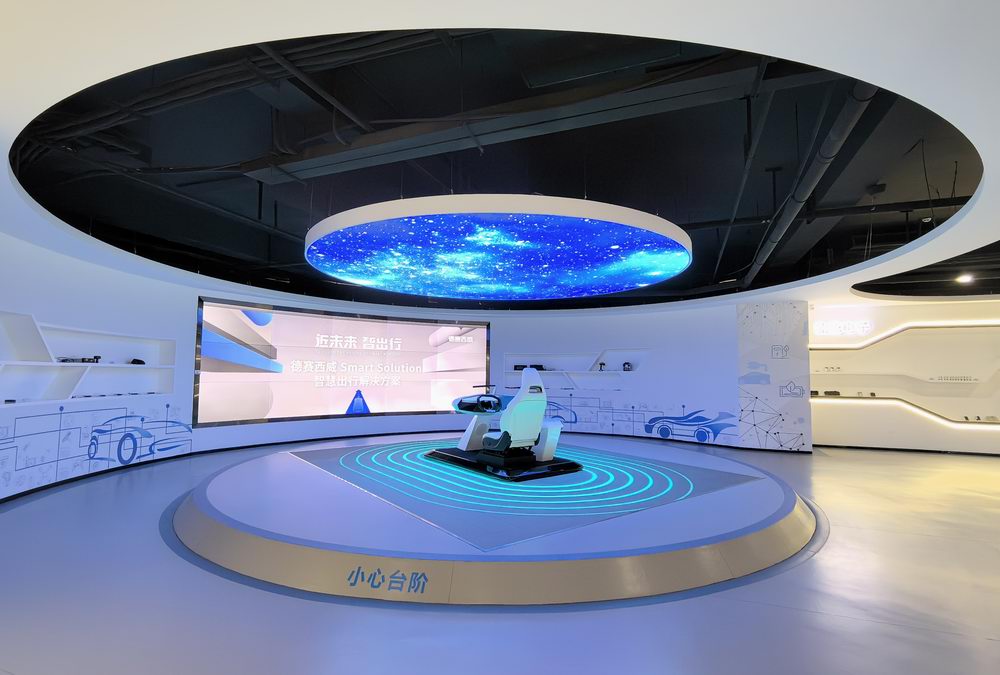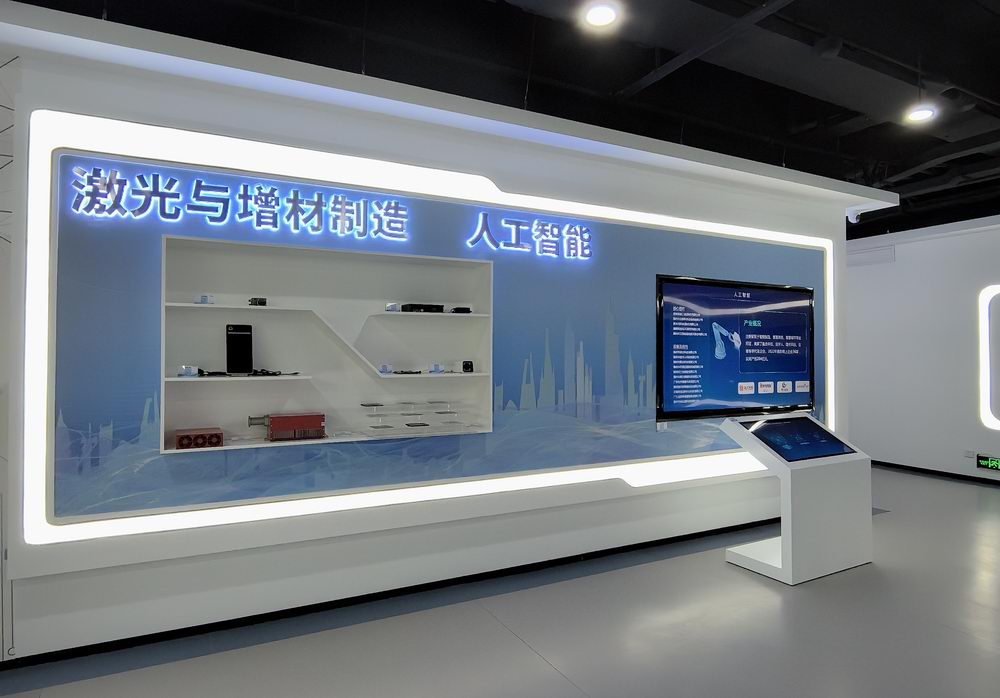What Role Do Industrial Clusters Play in Development?

Industrial clusters are geographic regions where companies from one or more industries are co-located and flourish. These clusters are vital for economic development as they encourage collaboration and innovation among businesses. Since the late 20th century, the rise of industrial clusters has had a significant impact on economies. A robust cluster can generate jobs and attract private investment. For example, a medical devices cluster with an employment multiplier of 1.9 indicates that every 10 new hires lead to 9 additional jobs in the area. The Huizhou Zhongkai High-tech Zone serves as a Sustainable Development Experimental Zone, supporting industry clusters to enhance enterprise growth. Additionally, it functions as a National foreign trade transformation and upgrading base, utilizing an electronic information cloud platform to further bolster its economic impact.
Understanding Industrial Clusters

Definition and Characteristics
Key features of industrial clusters
Industrial clusters bring together companies in the same industry within a specific region. This setup boosts collaboration and innovation. Businesses share resources, knowledge, and infrastructure. Companies in clusters often experience increased productivity and competitiveness. For example, California’s Silicon Valley leads in technological innovation due to its strong cluster environment.
Differences from other economic models
Industrial clusters differ from other economic models by focusing on geographic concentration. Unlike dispersed industries, clusters create a network of interconnected businesses. This network fosters cooperation and competition. Clusters also enhance regional specialization, unlike isolated companies that may lack synergy.
Historical Context
Early examples of industrial clusters
Industrial clusters have roots in history. The textile industry in 19th-century England serves as an early example. Factories and suppliers concentrated in specific areas, creating thriving communities. These clusters laid the groundwork for modern economic development strategies.
Evolution over time
Over time, industrial clusters have evolved. Modern clusters like the Biopharmaceutical cluster show considerable employment ripple effects. North Carolina’s Biotechnology & Pharmaceuticals cluster ranks high in national employment. Manufacturing clusters now integrate services, reshaping competitive boundaries. The Tianjin Economic and Technological Development Area (TEDA) in China includes diverse industries and explores new technologies.
The Huizhou Zhongkai High-tech Zone exemplifies this evolution. The zone supports enterprises through the National Foreign Trade Transformation and Upgrading Base. An electronic information cloud platform aids businesses in growth and innovation. This platform provides essential tools and resources, enhancing enterprise development within the zone.
Economic Impact of Industrial Clusters
Benefits to Local Economies
Job creation and innovation
Industrial clusters create a vibrant job market. Companies in clusters hire more people. This hiring leads to more jobs in the area. New ideas and inventions come from these clusters. Businesses work together and share knowledge. This teamwork boosts innovation.
Attraction of investment
Investors love industrial clusters. Clusters show strong economic growth. Investors see opportunities for profit. Money flows into these regions. This funding helps businesses expand. More companies join the cluster. The local economy grows stronger.
Challenges and Limitations
Risk of over-dependence
Reliance on one industry poses risks. A downturn can hurt the whole region. Diversification becomes crucial. Regions need varied industries. This variety protects against economic shocks. Planning for diverse growth ensures stability.
Environmental and social concerns
Clusters face environmental challenges. Factories can pollute air and water. Communities worry about health impacts. Social issues may arise too. Housing and traffic become concerns. Balancing growth with sustainability is key. Responsible practices benefit everyone.
Zhongkai High-tech Zone serves as a great example. The zone supports businesses through a cloud platform. This platform aids companies in growth and innovation. Enterprises find essential tools and resources here. The platform enhances development within the zone.
Case Study: Huizhou Zhongkai High-tech Zone

Overview of the Zone
Key industries involved
Huizhou Zhongkai High-tech Zone stands out as a hub for innovation. The zone focuses on high-tech enterprises, including electronics and information technology. Companies like Zecheng Technology contribute significantly to the economic landscape. This area attracts businesses eager to engage in research and development.
Historical development
The zone's history reflects a commitment to growth. Established to foster technological progress, it has evolved into a center for innovation. Over the years, the zone has seen a rise in patent applications and technology transactions. These achievements highlight the zone's role in driving economic development.
Current Trends and Successes
Economic growth indicators
The zone showcases impressive economic growth. High-tech enterprises thrive here, leading to increased job opportunities. The National Foreign Trade Transformation and Upgrading Base plays a vital role. An electronic information cloud platform supports businesses, enhancing productivity and innovation.
Community and business impact
The impact on the community and businesses is profound. Companies benefit from shared resources and infrastructure. The cloud platform offers essential tools for growth. This support boosts enterprise development and fosters a collaborative environment. The zone continues to be a beacon of technological advancement and economic prosperity.
Supporting Industry Cluster and Sustainable Development
Role in Sustainable Development Experimental Zone
Integration with local economies
Industrial clusters in the Huizhou Zhongkai High-tech Zone play a big part in the local economy. Businesses in these clusters share resources and knowledge, which boosts growth. Companies in the zone work closely with local suppliers and service providers. This collaboration strengthens the entire community. The zone acts as a Sustainable Development Experimental Zone, showing how industry can thrive while supporting local economies.
Environmental considerations
Environmental care is crucial in industrial clusters. Companies in the zone focus on reducing pollution and conserving resources. Factories use cleaner technologies to cut down on emissions. Businesses also engage in corporate social responsibility activities. These efforts help protect the environment and improve community health. The zone sets an example for balancing economic growth with environmental care.
National Foreign Trade Transformation and Upgrading Base
Electronic information cloud platform
The electronic information cloud platform in the Zhongkai High-tech Zone is a game-changer. This platform provides tools and resources for businesses. Companies use the platform to manage data and streamline operations. The cloud platform helps enterprises innovate and grow. Businesses find it easier to collaborate and share information. The platform supports companies in staying competitive in the global market.
Impact on trade and innovation
The zone becomes a hub for innovation and trade. The platform's impact on businesses is profound, helping them succeed in a competitive world.
Industrial clusters play a vital role in economic development. These clusters boost competitiveness and foster innovation. The Huizhou Zhongkai High-tech Zone exemplifies this impact. The electronic information cloud platform supports businesses by providing essential tools. Companies find increased productivity and growth opportunities. Future trends suggest more integration of technology and sustainability. This evolution promises exciting possibilities for regional economies. Interested readers can explore further or engage in discussions about these dynamic developments.
See Also
Elevating Industrial Clusters in Zhongkai High-tech Zone
Zhongkai High-tech Zone's Ascendancy: An Industrial Development Analysis
Ascension of Industry Clusters in Zhongkai High-tech Zone
Thriving Electronic Information Industry Cluster in Zhongkai High-tech Zone
Investigating Electronic Information Industry Cluster in Huizhou
Zhongkai High tech Zone National foreign trade transformation and Upgradi Base(Electronic Information)Cloud Platform.
Address: Zhongkai High-tech Zone,Huizhou City ,Guangdong,China
E-mail: huizhoueii@163.com 13510001271@163.com
Tel: +86-0752-3279220 Mobile: +86-13510001271


